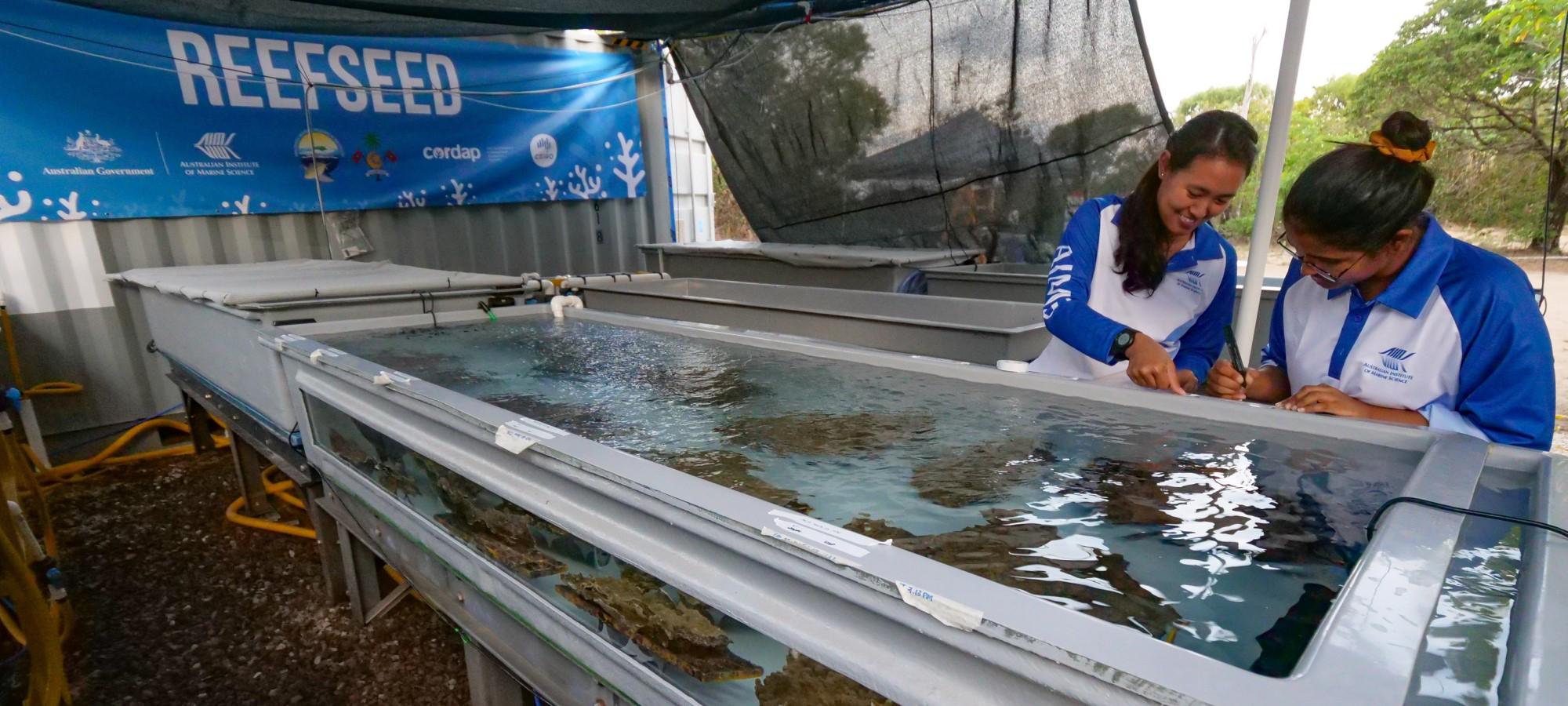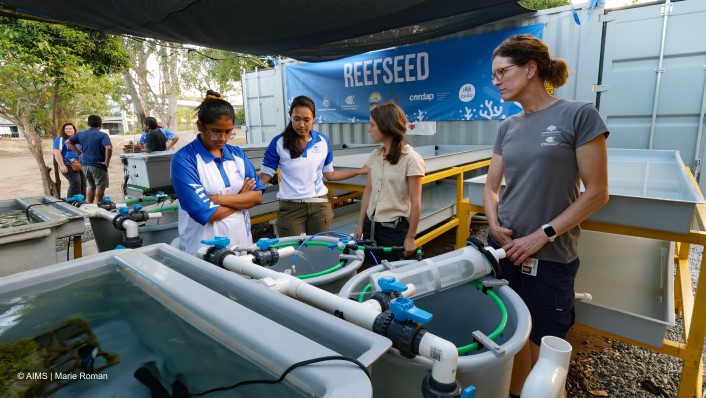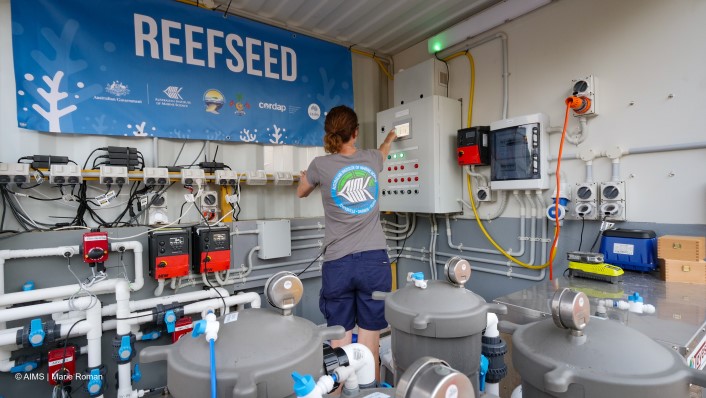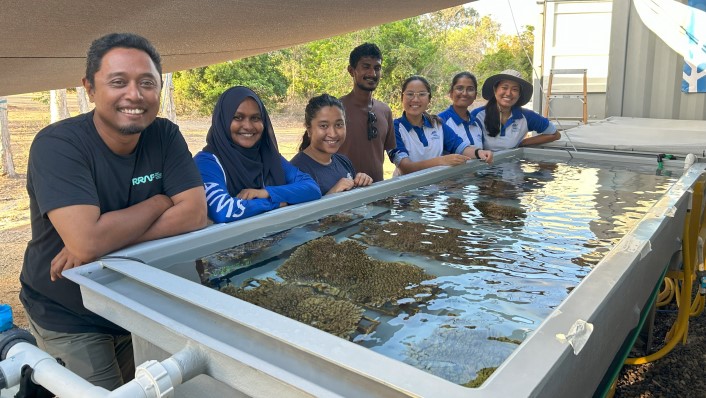Coral aquaculture techniques are being developed at AIMS and across the world to support large-scale efforts to fast-track reef recovery in the future.
AIMS’ research efforts focus on scaling up the production of healthy young corals to numbers that can be used across entire reefs or regions, alongside other multidisciplinary investigations into complementary reef restoration approaches. We are also pursuing ways these techniques can be operationalised and used by reef communities in remote regions, independent of specialist expertise or large-scale aquaculture facilities.
Innovation for large scale coral production
ReefSeed is an innovative portable, containerised coral aquaculture system capable of producing millions of coral larvae in remote regions for reef restoration.
Compared to manual spawning methods, ReefSeed is designed to maximise fertilisation success and larval production and reduce labour costs for restoration efforts.
The mobile coral birthing-and-rearing unit maintains high-quality water filtration and temperature control using an independent power source and draws water from the ocean to support a multi-phase coral rearing-process:
- spawning of adult corals from the wild in ReefSeed
- automated gamete (egg and sperm) capture and fertilisation of eggs
- development of coral larvae and
- settlement of coral larvae and development into young corals on specialised sheets.
Coral seeding devices are then assembled with the young corals on the sheets for deployment onto reefs.
ReefSeed is being developed by AIMS as part of the G20 Coral Research and Development Accelerator Program (CORDAP), with the Maldives Marine Research Institute (MMRI) as an implementing partner (for tech transfer, testing and overseas training and application) and CSIRO.
This innovative approach to remote coral aquaculture incorporates the science and technology of the Autospawner, developed by AIMS for the Reef Restoration and Adaptation Program, and other high-tech aquaculture methods for larval culturing, mass settlement and monitoring.
ReefSeed in 2024
After multiple prototype tests, the first completed ReefSeed unit will be put through its paces during the Great Barrier Reef spawning season in 2024.
The AIMS science and technical team will be re-joined by MMRI biologists and technicians who will test and train on the system in preparation for use in the Maldives in early 2025. A coral team from CSIRO has been working with the MMRI team to develop coral restoration skills and fundamental knowledge about spawning in local coral populations that will be applied to ReefSeed activities in early 2025.
Researchers
Andrea Severati (AIMS)
Christine Giuliano (AIMS)
Crystle Wee (AIMS@JCU)
Fathimath Risla Ibrahim (MMRI)
Fathimath Shazra Mueen (MMRI)
Mohamed Shuaib (MMRI)
Adam Haleem (MMRI)
Hassan Shakeel (MMRI)
Shafiya Naeem (MMRI)
Khadeeja Ali (MMRI)
Chris Doropoulos (CSIRO)
This research is supported by:
AIMS
CSIRO





